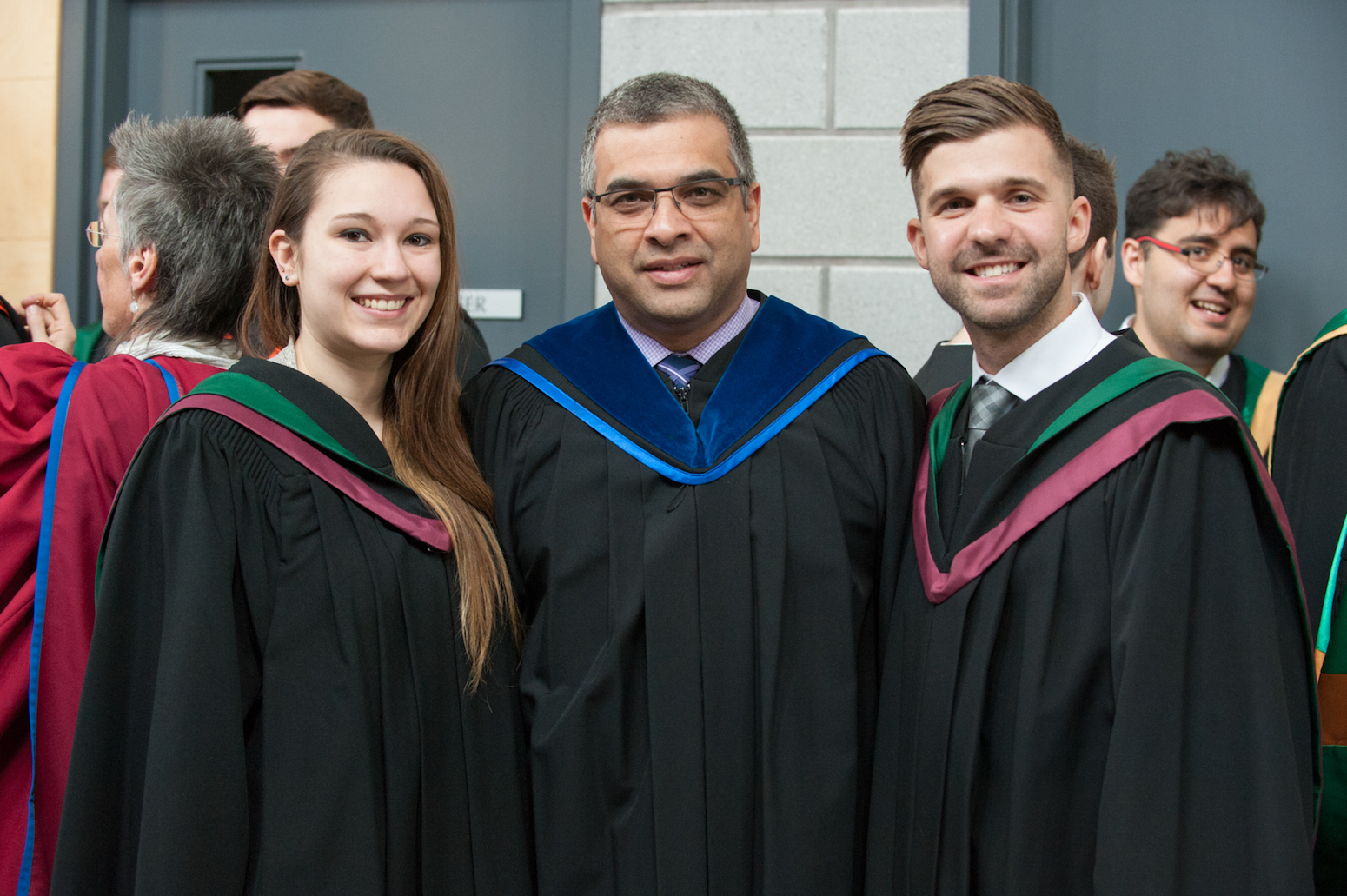Paramedicine degree presents world of opportunity for program’s first graduates
A desire to learn and an acute understanding of the future of his occupation have recent UPEI graduate Mike Hannah excited about the next steps in his education journey.
The Kensington PEI native applied his two years of study in Holland College’s Primary Care Paramedicine (PCP) and Advanced Care Paramedicine (ACP) programs to enrol in UPEI’s new Bachelor of Science in Paramedicine program.
“Going into Grade 11, I thought of paramedicine as an exciting career,” he says. “I found out I could go to Holland College in Charlottetown, which was super convenient.”
He received his PCP diploma in 2008, and started working full-time as a paramedic with Island EMS.
“I did that for a year, and then applied for the Advanced Care Paramedicine program,” he says. “I had been thinking about it, and it seemed like a great way to build on the skills I learned in my first program.”
In 2010, ACP diploma in hand, Mike worked with Island EMS in Charlottetown and Summerside before taking a year off and moving to New Zealand with a friend. He hadn’t planned to work while travelling, but his knowledge and skills were quickly recognized by the town’s ambulance station. He worked as an advanced care paramedic for almost nine months until his work visa expired, and returned to work as a paramedic in PEI.
“I really enjoy my job as a paramedic, but like anything you do for a while, you look to build on your knowledge base and improve your skills and practice,” he says. “As I was thinking about it and looking for degree programs, there was only something in Ontario for that pathway, so I was considering applying there.”

But a serendipitous emergency call during his evening shift brought Mike to the Queen Elizabeth Hospital, where he mentioned his plans to the emergency room physician: Dr. Trevor Jain.
“I'm not sure how it came up, but he said at that time there was a plan in the early stages to offer a degree program at UPEI,” Mike says. “I decided to keep working and wait. The way Dr. Jain described the UPEI program as an applied degree with upper-level paramedic courses, it made sense to stay where I work and where my family is. And, a lot of people have amazing stories about their experience at UPEI.”
With his two years of college education and a few part-time semesters picking up elective courses, Mike started as a full-time UPEI student in 2016, with a course load comprised of biology courses, paramedicine courses, research courses, and electives.
“Dr. Jain taught a course in disaster medicine and crisis response, which was one of my favourite courses in the program,” he says. “We talked a lot about how to put together a medical action plan for a large event, and what to do if there was a disaster or major medical event of any kind.”
Mike reflects on his two college diplomas and his science degree as stepping stones to the future of paramedicine practice.
“The program in college was great, it was extremely focused and everything you learn is going to influence the way you do your job. It's something I really value because it prepares you to use what you learn every day at work [as a paramedic],” he says. “At UPEI, it’s about a broader understanding of the ‘why’. It wasn't too long ago when paramedics would pick someone up, put them in the back of the ambulance and drive super-fast to the hospital. But now we're doing procedures, interventions, that were really only available in emergency departments.
“I think the degree program is a way to build the profession, and if you are really interested in this job and this career, it's a natural step forward,” he says. “Once you've taken the PCP and the ACP schooling, if you want to further develop your skills and evaluating how changes and new evidence will change our profession, it's a natural pathway for anyone committed to paramedicine.”

